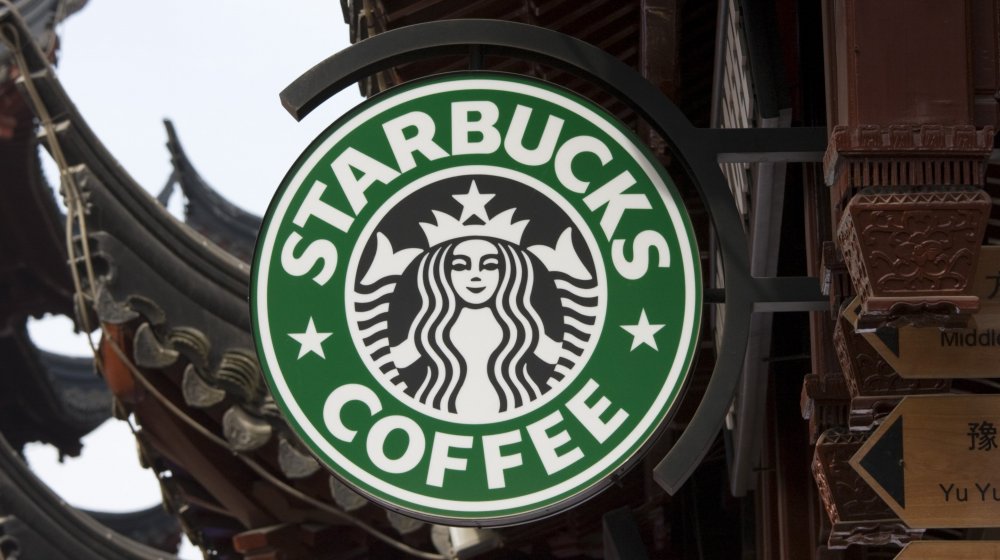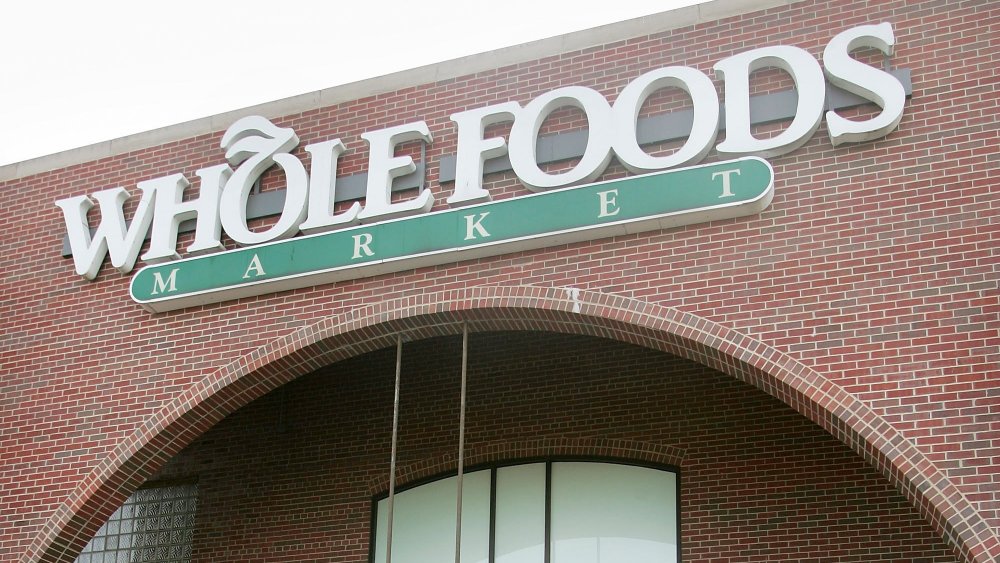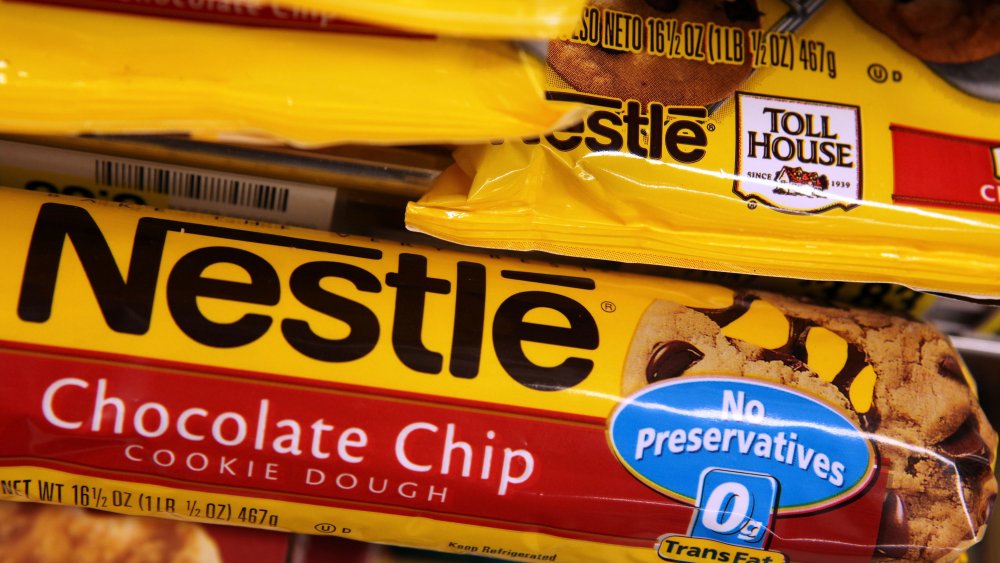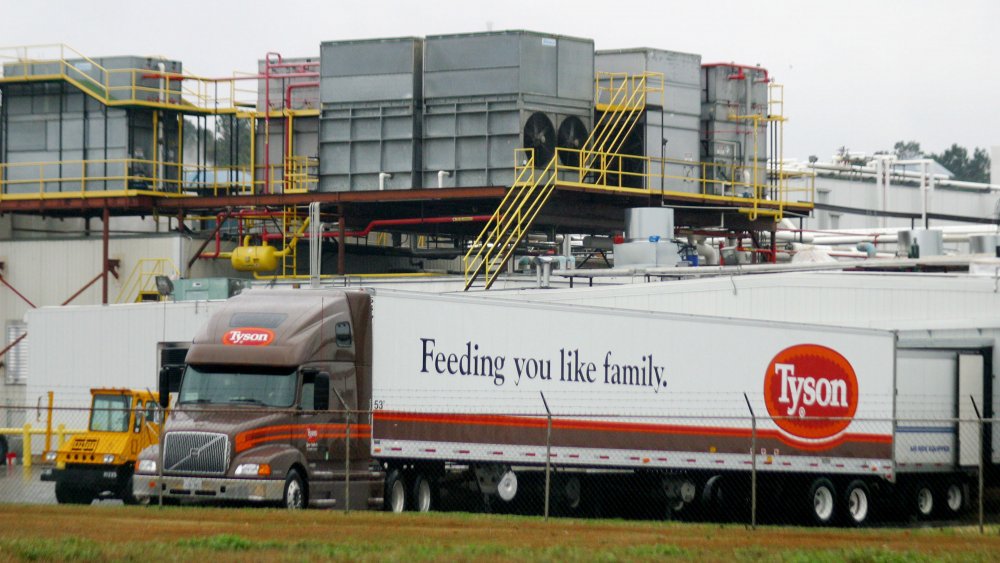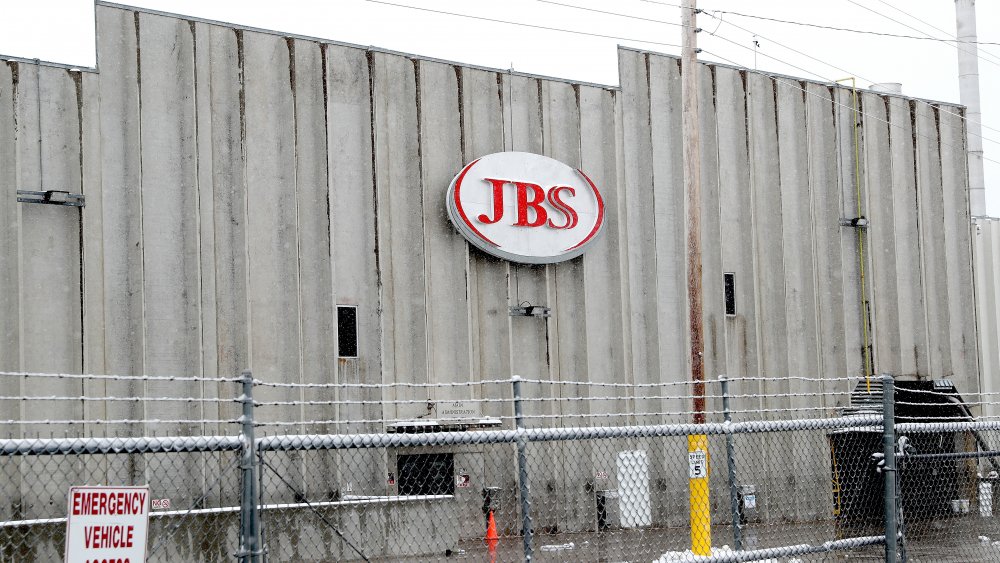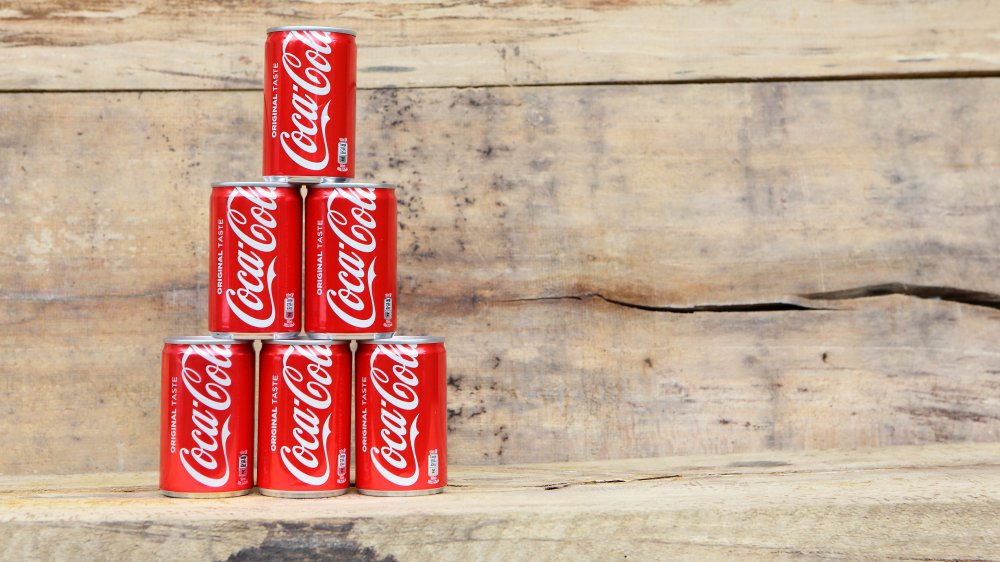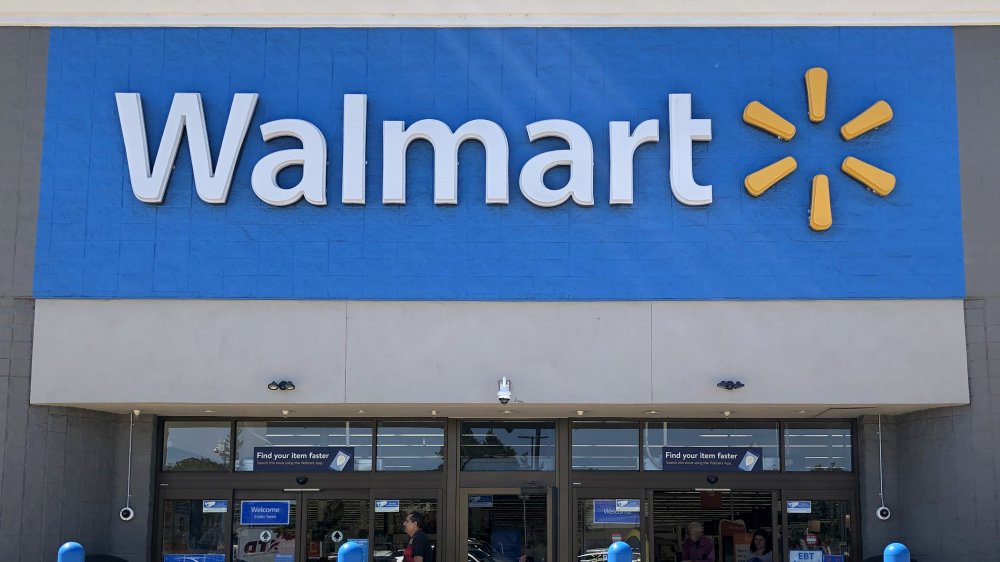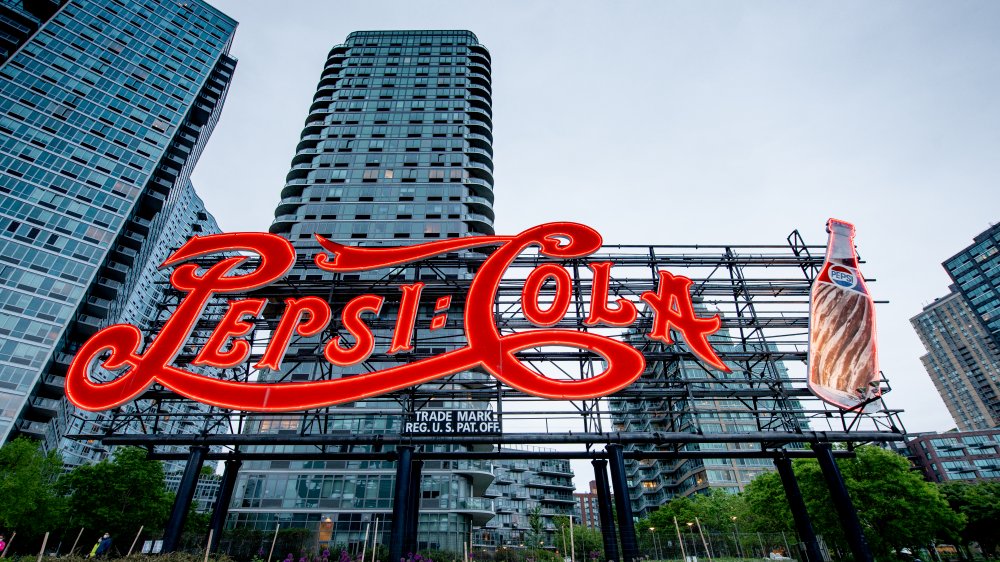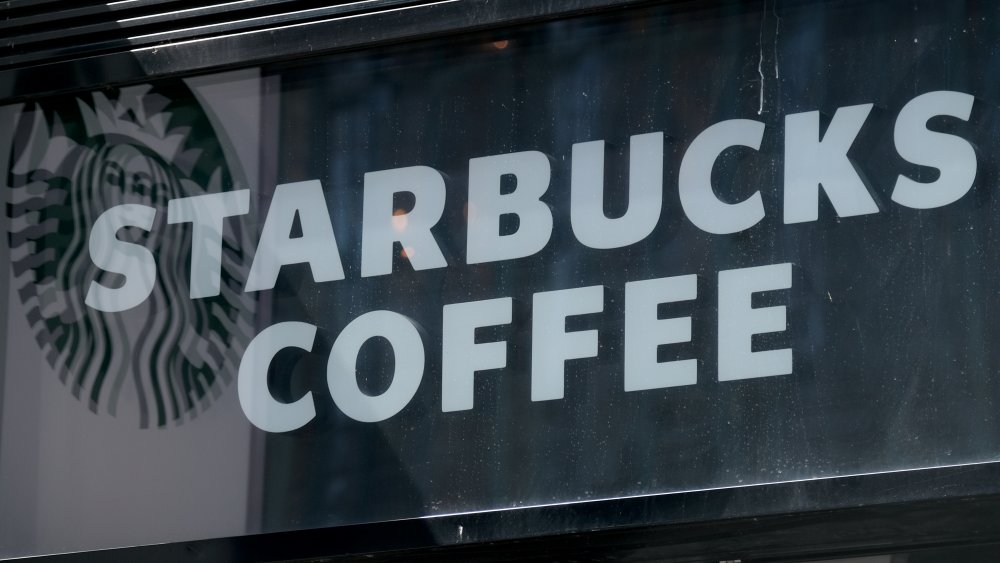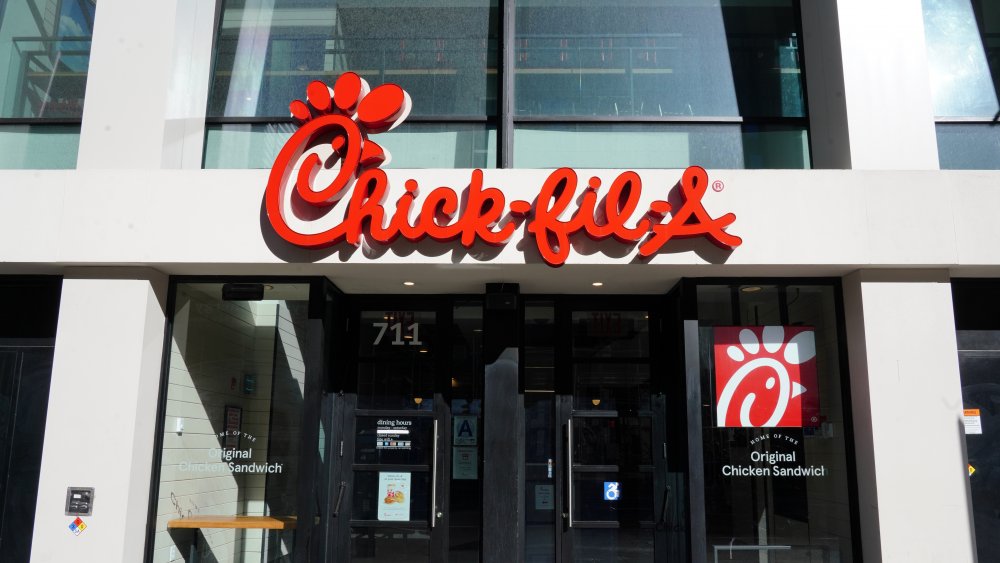Ridiculously Wealthy Food Companies That Don't Do Enough Charity
Many of the wealthiest and most well-known companies stepped up to contribute amid the economic recession of spring and summer 2020. The top 25 food and restaurant companies produced a combined revenue of $815 billion in the 2019, according to Forbes, and with an increased demand and panic-buying of many grocery items, they stand to increase their profits.
But it shouldn't take a crisis for these multibillion dollar companies to donate more than a tiny fraction of their massive wealth, should it? Plus, company-owned philanthropy foundations and charitable donations are not the best strategy for alleviating inequality, as many corporations manipulate these humanitarian efforts to help them rig tax policies. Even more boast large-scale giveaways while the employees who directly influence company profits go underpaid and overworked, as The New York Times highlighted.
Nonetheless, it seems only fair that the wealthiest food companies in the world should redistribute a portion of their earnings to reputable charities and nonprofits. And while many do, there are others whose philanthropic efforts seem more like PR stunts than significant attempts to give back. Mashed took a look at the food world's worst offenders so, without further ado, here are the ridiculously wealthy food companies that don't do nearly enough charity.
Whole Foods may not be as charitable as you thought
A list of the world's not-so-charitable businesses simply would not be complete without a company owned by the notorious Jeff Bezos, who, as we all know, is slated to become the world's first trillionaire. It is true that the Amazon-owned Whole Foods has various philanthropic foundations, including the Whole Kids Foundation, Whole Planet Foundation, and Whole Cities Foundation and frequently advertises itself as a socially and environmentally conscious grocery market that "deeply value[s] giving back."
This grocery giant is often praised for its Community Giving Day program, which consists of a once-per-quarter day of fundraising. On these "5% Days," as they are often called, Whole Foods donates five percent of their net profits to charities across the country. These are all great endeavors, of course, but Whole Foods may not be as charitable as you'd think.
After all, the company makes $16 billion annually, according to Statista, for a daily total of nearly $44 million. In September 2019, the annual Whole Foods Growing Healthy Kids campaign announced it aimed to fundraise $3.4 million for food education programs in schools. Additionally, the company promised to match donations up to $1 million during the first two weeks of the campaign. A $1 million match may sound like a lot, but that was just about 0.006 percent of the multibillion-dollar company's total net profits.
Nestlé isn't all about giving
In 2019, Nestlé placed among the top 20 wealthiest companies in the world with a net profit over $10 billion, according to MarketWatch. Nestlé's astronomical wealth is due to the company's status as one of the most influential brands that's overtaken the food and beverage marketplace, thus creating a monopolistic empire that squanders competition and, in turn, causes massive inequities across the industry.
Despite the company's huge earnings, some of the powers at be at Nestlé didn't feel all that compelled to give to charity. In 2005, head of Nestle S.A. and chairman Peter Brabeck-Letmathe insisted that companies should not feel obligated to give back to the communities they inhabit, remarking, "What the hell have we taken away from society by being a successful company that employs people?"
Nevertheless, the company website boasts community-based philanthropic programs Nestlé sponsors or supports, such as the GirlSports and the Adopt-A-School programs. The company's Community Care Campaign states that Nestlé employees donated $1.2 million last year, which Nestlé matched. Additionally, through Feeding America, the company donated "154 million pounds of food [and] gave $700,000 through cause marketing programs." Even including the money Nestlé employees contributed, though, this donation accounts for just a tiny fraction of the company's profits.
Tyson Foods may dish out millions, but it makes billions
Like many business conglomerates, Tyson Foods boosts their public image by avowing their commitment "to the communities we live and work in" while committing a multitude of labor and environmental atrocities. Tyson has been lauded for its multimillion dollar charitable donations, but for a company whose 2019 gross income was over $5 billion, according to MarketWatch, these big donations are similar to an individual throwing their pocket change into the donations jar at the supermarket.
In 2015, Tyson set a goal to donate $50 million to hunger relief over five years' time. Of course, $50 million is a lot of money that can surely be put to good use, considering the hundreds of millions (and counting) of undernourished people around the world. However, considering Tyson's 2019 gross profit of $5 billion, $50 million makes up just one percent of Tyson's annual profits, so to divvy up that small percentage over the course of five years, well, it screams that Tyson isn't giving as much to charity as it could and arguably should.
Does JBS USA have a giving spirit?
As the largest meat processing company in the world, JBS USA is certainly no stranger to philanthropic gestures. "We recognize the social responsibility of being a major employer," claims the "Social Responsibility" section on the JBS website. Upon closer look, though, many of the community-oriented charity projects appear to not actually be funded by JBS. Instead, the onus is on JBS employees to raise money, ostensibly by designing creative fundraising campaigns to encourage donations from community members.
Per the JBS 2017 Executive Report, the company strives "to provide a balance between providing financial support and in-person volunteer hours that match community requests." Additionally, the company revealed, "We do not set companywide giving or volunteering targets; instead, each JBS USA facility has an annual budget dedicated to supporting local initiatives and communities."
Later in the report, the company delineates each large charitable contribution it has made, which includes $12.5 million that went toward a "strategic, long-term partnership" with Colorado State University, an investment deal which will likely result in more money for JBS.
Coca-Cola gives back only one percent of its income
Coca-Cola's philanthropic goal is proudly announced on the company website: "Our goal is to give back at least 1 percent of our operating income from the prior year." Out of the individuals who donate to charity, the average person gives away two percent of their annual income, according to MarketWatch. One could argue that giant business conglomerates have a whole host of expenses that individuals lack, and that those businesses often end up donating millions of dollars to people and organizations that really need it.
Still, the fact that individual donors, on average, donate a bigger percentage of their incomes to charity than a company that made $22.6 billion in 2019 — and that's after taking into account all those business expenses — does not make Coca-Cola look particularly generous. This small fraction of Coke's huge annual profit equals a considerable amount of money, and yet, it's still only pocket change for this giant soda company.
Kroger used to be all about giving
Kroger has boasted its influence on the job market in the United States, claiming to have created "over 100,000 new American jobs over the past decade." Still, after the grocery conglomerate announced a round of layoffs in fall 2019, it was disparaged by then-presidential candidate Elizabeth Warren for spending money on stock buybacks rather than employee salaries. If the most profitable companies in the country prioritized redistributing wealth in ways that benefited charitable organizations and lower-income families (many of whose members spend their lives working for said companies), perhaps this grocery company would not be on this list.
Kroger and its "family of companies" (including stores such as Dillons, Food 4 Less, and Fred Meyer) contributed $328 million to community organizations in 2018. This huge company, however, made a total profit of $26.7 billion that same year. Kroger's was on Forbes' list of most generous companies in 2010, when it donated 10.9 percent of annual profits, but it seems it has become less charitable with age: These 2018 donations account for only 1.2 percent of the company's total profits.
Walmart looks like it gives a lot to charity, but there's more to the story
Walmart's grocery offerings make up for more than half of the company's annual revenue. And, in 2019, Walmart made a whopping $524 billion. It is almost difficult to know how much money a company that size should be giving away because the mind turns blank or shuts down entirely when trying to comprehend such an enormous amount of cash.
And yet, Walmart forges ever onward, throwing what amounts to pocket change at various charities. Walmart has long had a reputation for its unparalleled corporate greed. The owners of Walmart, the Walton family, frequently top lists of the least generous business owners in the world, such as the 2018 "Scrooges of the Forbes 400" roundup, on which Walmart founder Sam Walton's grandson, Lukas Walton, appears at number two.
In 2013, Walmart boasted that its donations totaled over $1 billion. That's no small number, of course, but with a gross profit that same year of around $466 billion, even such a massive sum of money isn't even close to one percent of what Walmart made that year.
PepsiCo may not only be ungenerous but disingenuous
Pepsi and Coke: the yin and yang of sodas. Sadly, these beverage giants don't quite balance each other out in terms of charitable giving; their branding strategies and philanthropic foundations yield the similar manifestations of corporate greed. They even participated in matching corruption schemes to fight public health initiatives to encourage Americans to drink less soda — while simultaneously publicizing the millions of dollars they've donated to health-oriented charities, The New York Times reported.
According to the PepsiCo website, the sum total of its 2019 Global Citizenship donations and the company's foundation disbursements comes out to $144.1 million. If this seems like a considerable amount of money it's because, well, it is. Nevertheless, the company made approximately $37 billion in profits in 2019, meaning those seemingly huge donations are actually worth only 0.39 percent of the amount of money Pepsi made last year, which is certainly nothing to brag about.
Add to that Pepsi's questionable tax strategies, as investigated by Julia Lurie for Mother Jones, and it becomes obvious that Pepsi is not as generous as the company would like you to believe.
Starbucks donates only a small portion of its profits to charity
You may want to put your latte down for this one. Starbucks has been praised for its "corporate activism," but not so much for its charitable contributions. In 2015, the coffee giant donated $29 million in cash to various organizations around the world, but this was a year when the company's net revenue topped out at over $19 billion. As such, those multimillion-dollar donations only represented an itty bitty part of Starbucks' annual profits.
After the 2018 controversy involving a Starbucks employee's racial discrimination, Starbucks began focusing on philanthropy that promoted racial equality. Unfortunately, these contributions were even far less generous than their previous donations. In June 2020, Starbucks pledged to donate $1 million to organizations that promote racial equality. Though this may seem like an impressive sum of money, Starbucks, as the leading coffee retailer in the world, made over $26 billion in sales with a gross income of $5.7 billion in 2019.
Chick-fil-A has a controversial past when it comes to charitable contributions
Chick-fil-A has been criticized for its donations to anti-LGBTQ charities, which resulted in many boycotting the fast food chain (despite those legendary chicken sandwiches). According to Vox, Chick-fil-A eventually vowed to avoid to cut ties with the controversial charities, but that's not to say the chicken chain has increased its giving elsewhere.
In 2018, Chick-fil-A donated $16 million of its $910 million net cash profit to charities. Compared to Chick-fil-A's 2018 sales, which amounted to about $10 billion, those donations look pretty slim. The fast food giant not only makes billions of dollars every single year, but it has been in business for decades, obviously amassing an incredible fortune.
Nevertheless, Chick-fil-A promised "a more focused giving approach" for 2020. According to the company, "the Chick-fil-A Foundation will deepen its giving to a smaller number of organizations working exclusively in the areas of education, homelessness and hunger," with $9 million split between the three. In total, Chick-fil-A said it will "provide approximately $32 million in total cash gifts in 2020" through its various initiatives — double that of what it donated in 2018.
